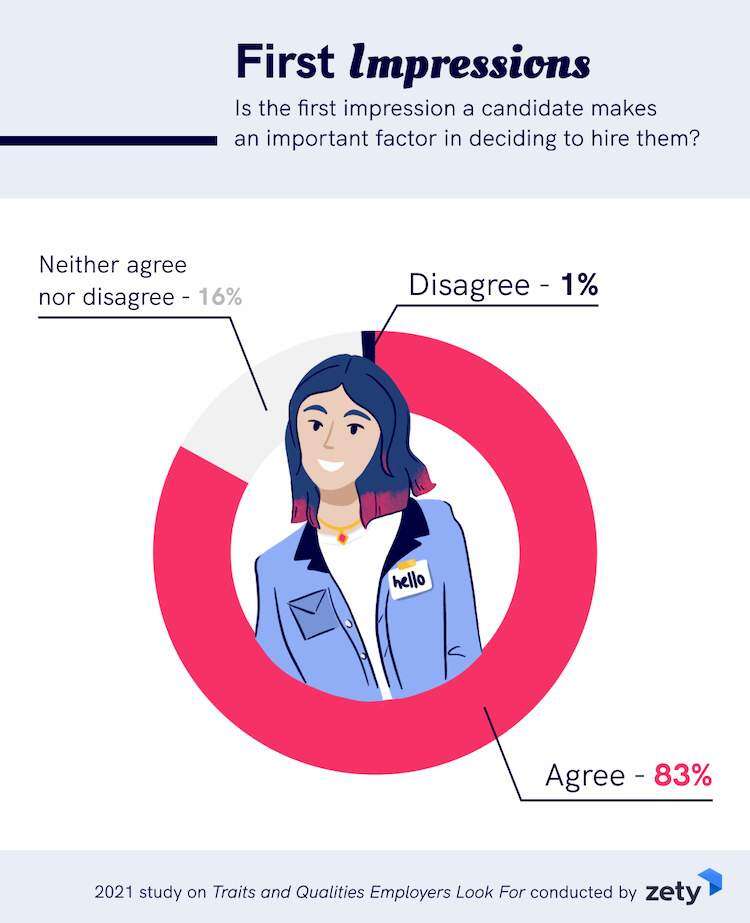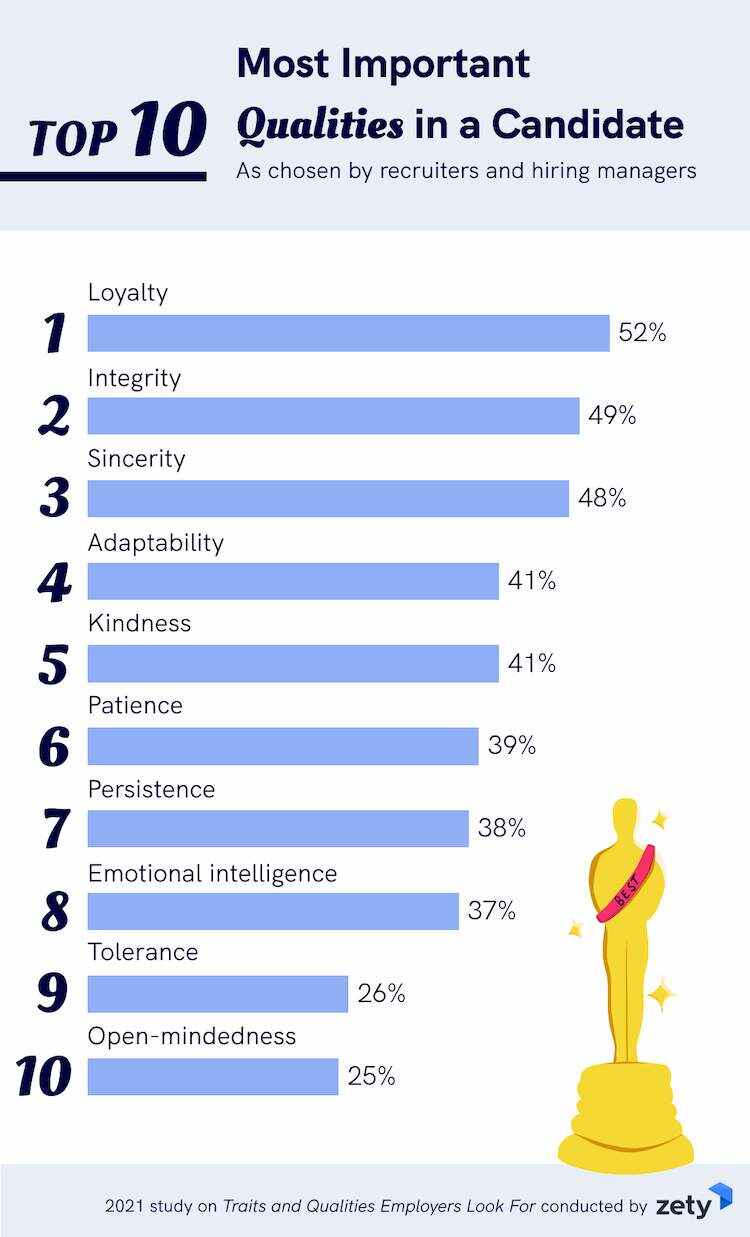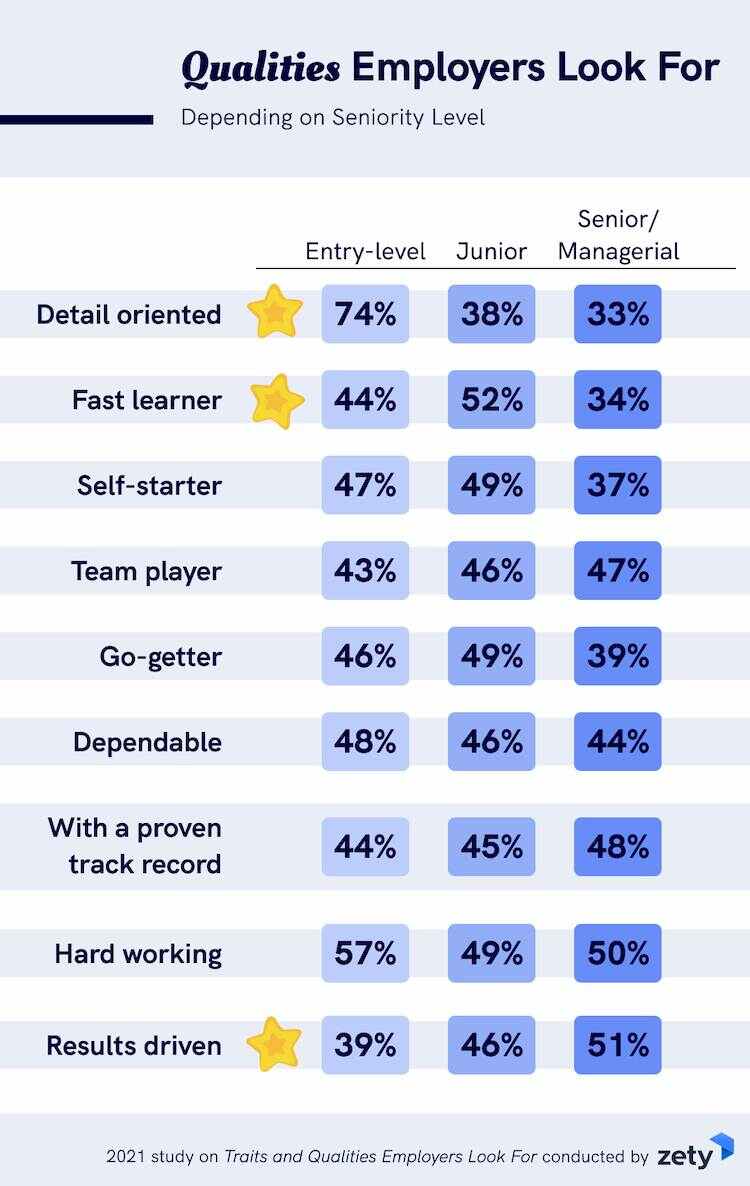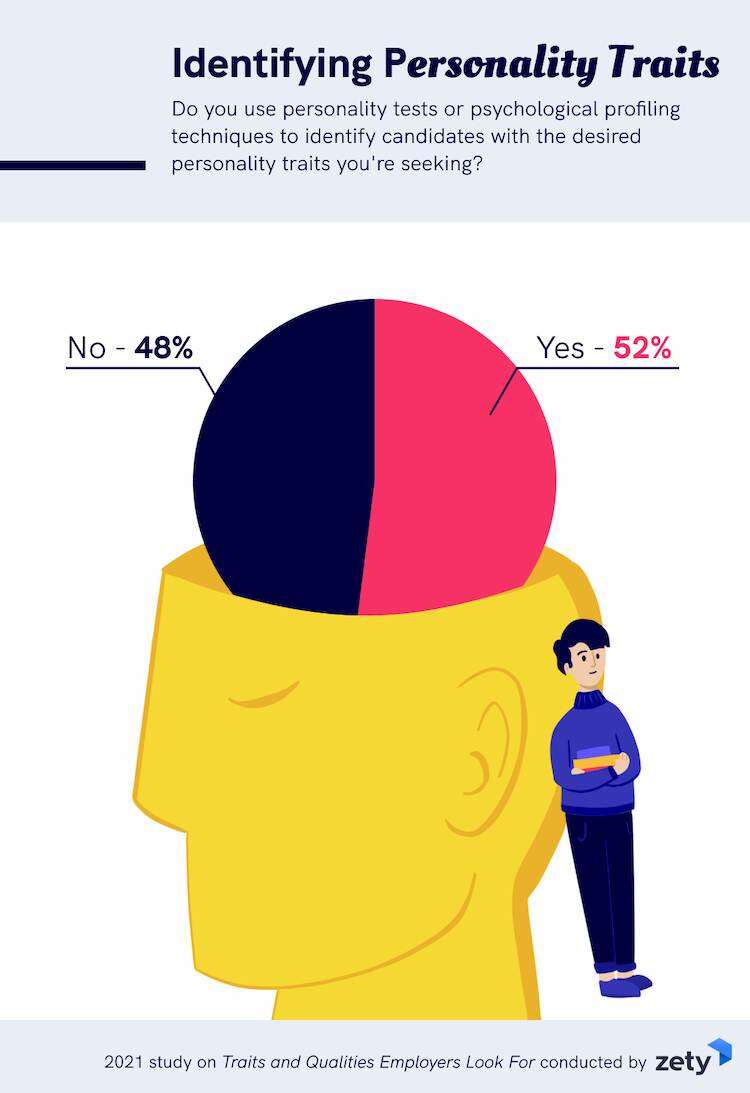Career Tips
Best Traits And Qualities Employers Are Looking For

Recruitment is getting more automated. Applicant monitoring systems shortlist acceptable prospects using keywords and analytics. Nonetheless, the hiring process retains a distinct human element. Employers are searching for more than just a perfect resume, they want to know who the person behind the page is.
The person who will be an ideal fit for the position and the team. And to do so, they consider a complicated set of features and qualities that work together to produce the ideal candidate for the position. But what is the secret sauce to success? We conducted a survey to gather hard data in order to establish that certain something that distinguishes the ideal professional. Over 200 hiring managers and recruiters provided feedback on the most significant attributes and features they look for in a candidate.
First Impressions Count
The name alone contains a hint. Personal characteristics and attributes cannot be adequately expressed on paper. They need to be assessed in person. When it comes to recruitment, the assessment begins the moment you meet the recruiter or hiring manager.
You’ve heard every cliché about first impressions. “You don’t get a second chance to make a first impression,” “you can tell a lot about someone from their handshake” and so on and so forth. However, these sayings contain a powerful kernel of truth. People build their judgments on those essential first minutes of meeting.
According to some research, it just takes one-tenth of a second to begin judging important personality attributes such as trustworthiness. And our own data supports the value of first impressions. The vast majority of our respondents, 83%, felt that it is a significant aspect in the recruiting process, with only 1% openly objecting.

So it’s essential to make the most of that narrow window of opportunity, which is anywhere up to the first 30 seconds of meeting depending on what study you look at. And the most important thing to focus on in the crucial first seconds? We’d suggest it’s the “niceness factor.” Project confidence and trustworthiness to get off to a strong start.
And it’s backed up by science too. Amy Cuddy, a social psychologist at the Harvard Business School, says her studies reveal trustworthiness and confidence create 80–90% of the first impression. As Cuddy puts it:
Trust opens them up to what you have to say. It opens them up to your strength and confidence. Trust is the conduit through which ideas travel.
We also asked respondents how they confirmed their original perceptions. This was an open-ended topic, so we received a variety of responses, but body language and personal appearance were recurring themes.
Again, this relates directly to the critical need of trustworthiness and confidence. Body language and personal appearance play a vital role in nonverbal communication, accounting for up to 50% of what we express to others. And it is a really primitive and essential aspect of how we perceive others.
As one respondent explained:
You can predict very quickly whether you like a person and if others will.
To sum up, yes they are judging you, but you can nail that first impression by projecting an impression of confidence and trust from the moment you walk in the door. Now for the big one. Once the first impression is complete, what specific qualities do employers look for in a candidate?
Top 10 Most Important Qualities

We asked our respondents what characteristics they look for in potential employees. They could choose up to five attributes, and these were their top 10 picks.
They were rather predictable, with loyalty and honesty coming in first and second place. Dedication to your employer, as well as honesty and strong moral beliefs, are required for success in the great majority of workplaces, thus this comes as no surprise.
What’s most apparent is that the “niceness factor” we mentioned earlier feeds through to the most desirable character attributes. Sincerity, kindness, patience, emotional intelligence, tolerance, and open-mindedness all appear on our list of acceptable candidate characteristics.
Not only must you be good at the work, but also a nice person. It’s not just us. A Perspectives in Psychological Science study examined big HR data sets to determine which personality qualities employers appreciate most.
They also used the Department of Labor’s O*NET database, which aggregates occupational characteristics and worker requirements across the U.S.
In both circumstances, two broad categories were most desirable. Responsible and friendly. Thus, devotion, work ethic, and the “niceness factor” are essential. We even claim that agreeableness is the “X factor” everyone needs to succeed.
We also wanted to see if applicant attributes were universal or differed by role rank. We discovered this.

So it appears that some attributes are valued equally regardless of role seniority. Teamwork, dependability, a track record, and hard effort were valued at all levels. These are qualities every good employee should have.
But there were some intriguing contrasts. For entry-level jobs, twice as many respondents valued detail-orientedness as senior responsibilities. Completely makes sense. Leadership and management adopt a “big picture” strategic approach, whereas entry-level workers are more likely to work on daily activities that need attention to detail.
Another intriguing finding was that rapid learning is valued more from entry-level to junior levels but less from junior to senior. It may seem contradictory, yet it matches the idealized learning curve, the S-Curve or Sigmoid function.
In plain English, ideally learning should start with small steps (entry-level), followed by larger steps (junior) and then smaller steps towards the end of the process as the learning activity reaches its limits (senior). So the ability to learn quickly is indeed most important for junior/mid-level roles.
Finally, we spotted a notable difference between the need to be results driven from entry-level to senior roles. Again, perhaps counterintuitive at first but senior and leadership roles do have to have a greater focus on results. The buck stops with them, and they’re the final line of accountability for the results their teams deliver.
But we wanted to dig deeper. It’s all well and good knowing what employers want, but how do they go about verifying if you’ve actually got what it takes?
Putting Personality to the Test
Recruiters know what they want from a candidate. But do they go beyond that gut feeling to make a formal assessment of a potential employee’s personality traits?
Our results revealed that a significant proportion of them do. Around 52% of our respondents use personality tests or psychological profiling techniques to identify desired personality traits in candidates.

Our research also found a gender gap in these methods. Male recruiters used personality tests 56% vs 43% for females. Age groupings also differed greatly. In the youngest generation, 24–39, 51% of recruiting managers would employ profiling, compared to 14% of 56+.
Conclusion
The hiring process is still very human, and first impressions matter. Thankfully, one thing makes a good first impression and shows the most vital employment skills. The lovely factor.
Conscientiousness and agreeability are the “X factor” employers seek in candidates. Indeed, it is simple.












